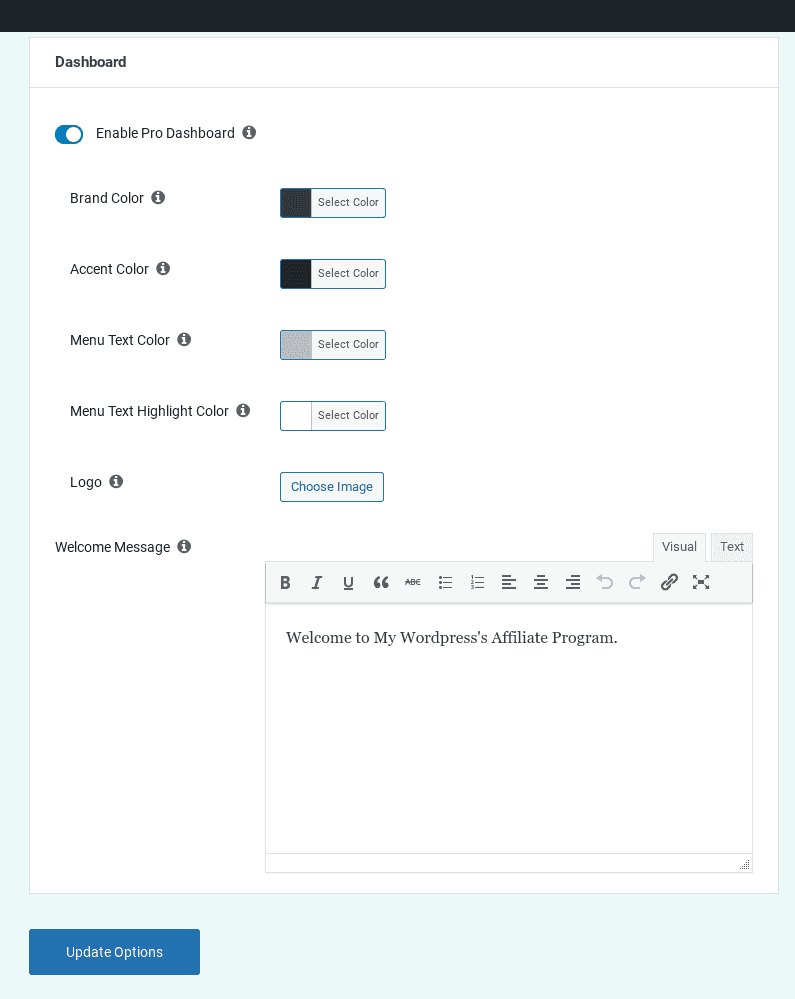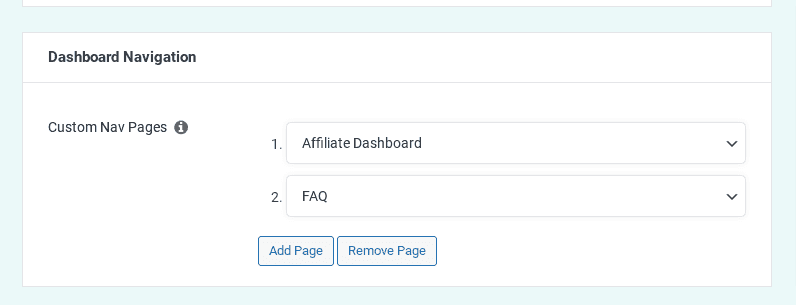Table of Contents
Find solutions to common affiliate management challenges. We cover link theft, poor communication, PPC fraud, and disempowered affiliates.
Running a successful affiliate program can be overwhelming. Unexpected problems can crop up any time, and a delay in addressing these issues can hinder your plans.
As an affiliate manager this can be stressful, especially if you don't know how to overcome them.
Fortunately, the use of a stellar affiliate management plugin can help you deal with these problems easily.
Plugins such as Easy Affiliate enable you to take full control of your program, and provide you with practically all the tools necessary to meet the needs of both your program and your affiliates.
In this post, we’ll highlight four common affiliate management problems, and provide advice on how to overcome each one using Easy Affiliate's comprehensive feature set. Let’s get started!
1. Poor Communication With Your Affiliates
As a program manager, your affiliates are your most important asset. This means you need to stay in contact with them, both to inform them of program updates and changes, and to stay on top of their concerns and questions.
Unfortunately, poor communication is a common occurrence in affiliate programs. This happens when managers withhold information – such as sales numbers and upcoming updates – and it can lead to a lack of trust at best.
Given that affiliates are responsible for promoting your products, poor communication with them can mean fewer sales for you, potentially resulting in fewer affiliates joining your program. The solution is simple: start communicating with your affiliates! Let’s take a closer look at how Easy Affiliate can help you do just that.
The Affiliate Dashboard is the place to start. Navigate to Easy Affiliates > Settings > Affiliates, then scroll down to Dashboard, where you can customize settings and enter a Welcome message for your affiliates:

Once you've created them in WordPress, you can also add more pages to the Dashboard via Easy Affiliate > Settings > Advanced. Scroll down to Dashboard Navigation, then choose your page from the dropdown.

2. Theft of Your Affiliates Links
Link stealing is the action of copying an affiliate link URL, then replacing the information at the end of the link (such as an affiliate ID) with your own. This is a direct form of stealing – taking potential earnings away from other affiliates – and while you aim to only work with trustworthy associates, sometimes it happens.
Of course, link stealing doesn’t always happen among affiliates. Essentially, anyone could look to score a discount on a linked product by signing up for it as an affiliate, then purchasing the item with their own link. In the majority of cases they get caught; however, it’s still a nuisance to deal with.
The problems caused by link stealing vary based on the culprit. When it happens among affiliates, it can create feelings of hostility. This is because affiliates may feel as if their links aren’t protected, and other less-honest affiliates are benefiting from their work. In short, it can flood your program with affiliates who are stealing from you.
Easy Affiliate's Fraud Prevention add-on goes miles to protect you from this problem.
Another way to reduce the risk of links being stolen is to cloak them. This makes it impossible for others (either inside or outside the program) to replace the affiliate information at the end of the URL with their own. To get started, we recommend a link shortener plugin, such as Pretty Links.

Cloaking your links is a simple process. Once the plugin is installed, navigate to Pretty Links > Add New Link on the left side of the WordPress dashboard.
From here, select a redirection type (cloaking, in this case), enter the target URL, then add a slug to the end of the link. Now, your affiliate links are safeguarded against theft!
3. PPC Fraud in Affiliate Marketing
One of the less discussed yet significant challenges in affiliate marketing is the risk of PPC (Pay-Per-Click) fraud.
This type of fraud occurs when individuals or entities exploit paid advertising to unjustly claim commission by hijacking affiliate links or bidding on branded keywords that are supposed to be off-limits.
Such deceptive practices can inflate your advertising costs and distort your marketing data, leading to inefficient spending and skewed analytics.
For example, an affiliate might use PPC ads to bid on your brand’s keywords despite restrictions, driving up your costs and intercepting traffic that should have come to you directly.
This not only increases your expenses but also undermines the effectiveness of your genuine affiliates.
Easy Affiliate, integrated with Google Analytics, provides a powerful defense against such tactics.
Using UTM (Urchin Tracking Module) parameters, Easy Affiliate adds a layer of tracking to every affiliate link, which can then be monitored through Google Analytics. Here’s how you can set it up:
1. Enable UTM Tracking
Within the Easy Affiliate dashboard, enable UTM tracking for all affiliate links.
This automatically appends UTM parameters like utm_source, utm_medium, and utm_campaign to URLs, which lets you the origin and nature of the traffic.
From your WordPress dashboard go to Easy Affiliate > Settings > scroll to Links> click the slider next to UTM Affiliate Link Tracking.
2. Google Analytics Monitoring:
In Google Analytics use the Traffic Acquisition report to monitor these parameters. Look for anomalies or suspicious activities, such as unexpected traffic from paid sources when your affiliates are supposed to use organic methods only.
Read our dedicated blog on preventing affiliate PPC fraud to get more specific instructions on how to do this.
3. Set Restrictions
Define clear rules within your affiliate program terms and conditions about which types of marketing are allowed.
4. Auditing and Compliance
Regularly review the performance and traffic sources of your affiliates through GA4.
If you spot the use of branded keywords or unauthorized PPC ads, you can take immediate action, such as revoking affiliate status or withholding commission.
By integrating Easy Affiliate's UTM tracking with Google Analytics, you gain a comprehensive view of your affiliates' tactics, enabling you to quickly identify and respond to PPC fraud.
This will simultaneously protect your marketing budget and maintain the fairness and integrity of your affiliate program.
4. Failure to Empower Your Affiliates
As a manager, you (of course) have a lot on your plate. This means you may not always have the time to empower your affiliates, which can lead to poor performance.
Empowering your affiliates simply means providing them with the tools and resources they need to make smart and effective decisions. Failure to do so can lead to a number of issues. For you, it means giving up some control and trusting your affiliates as marketing professionals to make their own decisions. You can overcome this problem in a few ways, including with the help of Easy Affiliate.
While you could offer empowerment in a number of ways, creating an affiliate resource hub is a stellar idea you should consider first. This is a page (or collection of pages) that contains tools, guides, tutorials, and more on how to use your products, the intricacies of your affiliate program, and anything else you think they need to do their jobs effectively.
Conclusion
Whether you’ve just started your affiliate business, or it's been going for a while, problems can occur that can make running your business difficult. However, with an affiliate management plugin such as Easy Affiliate, you can implement measures that can help you overcome these problems.
In the above post, we’ve highlighted three common problems faced by affiliate managers and how they can overcome them with Easy Affiliate. To quickly recap:
- Poor communication with your affiliates.
- Theft of your affiliates' links.
- PPC Fraud
- Failure to empower your affiliates.
What kinds of affiliate management problems have you faced? Let us know in the comments section below!
If you liked this post, be sure to follow us on Twitter, Facebook, and LinkedIn! And don't forget to subscribe in the box below.



